On Sunday, protesters in Bristol tore down a statue of slave master Edward Colston and threw it into the city’s harbour. As well as many other protests across the UK, activists in London gathered at the US Embassy and Parliament Square for speeches, chants and sombre moments of kneeling in solidarity.
Children hung Black Lives Matter signs outside their windows as they cheered on protesters; mini sound systems blasted Bashy’s “Black Boys” as people from all backgrounds sung, danced and revelled in shared hope; protesters chanted “stop killing the mandem” as “The Electric Slide” echoed around Parliament Square. The mood at the Black Lives Matter protest on Sunday felt like a celebration of Blackness.
While there has been a feeling of hopelessness during the coronavirus crisis, where millions have been confined to their homes under lockdown, it feels safe to say that finally there’s a whiff of change in the air, which even the former US president has sniffed out.
In a speech to young people last week, Barack Obama said their activism has been a source of hope for him. “You have helped to make the entire country feel as if this is something that’s got to change,” he said. “You’ve communicated a sense of urgency. That is as powerful and as transformative as anything that I’ve seen in recent years.”
Sunday’s protest in London felt more like Notting Hill Carnival, with thousands of people dancing, laughing and marching in solidarity. Refinery29 was keen to hear of the impact the protests were having on some of the young women and girls making their voices heard, so we headed down to ask them whether they felt this time was different. This is what they had to say.
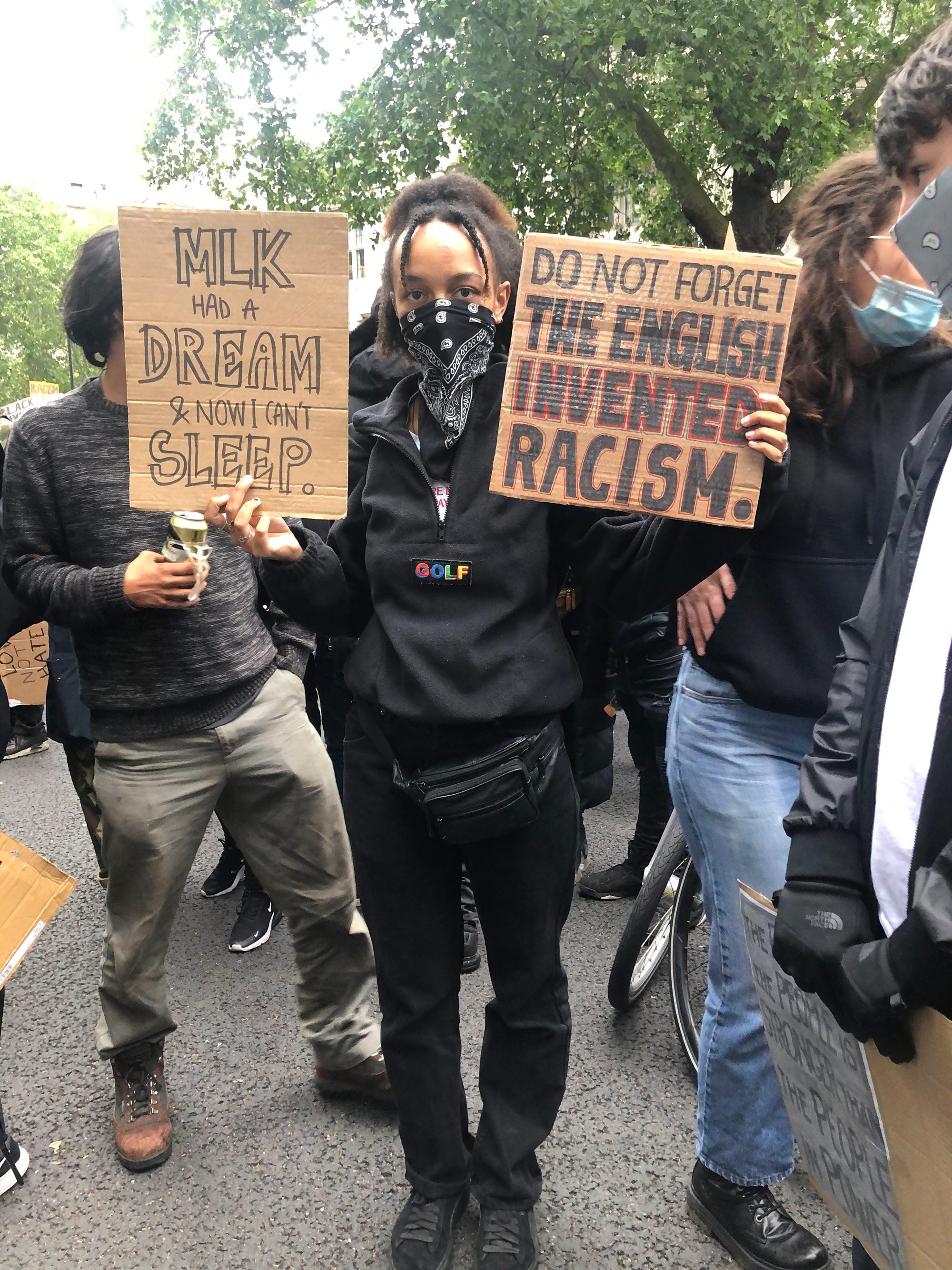
“This is a hugely important issue that we have been fighting for years. Thankfully, because of social media, we have the power of honest reporting that we’ve never really had before. It is important to use the privilege of the information age to end this oppression. We have a way to connect internationally now and although this started in America, the whole world is impacted.
The best part of today has been the general turnout and solidarity. I went to a protest in Brighton and the size of this one is completely different. Some of the signs have been amazing.”
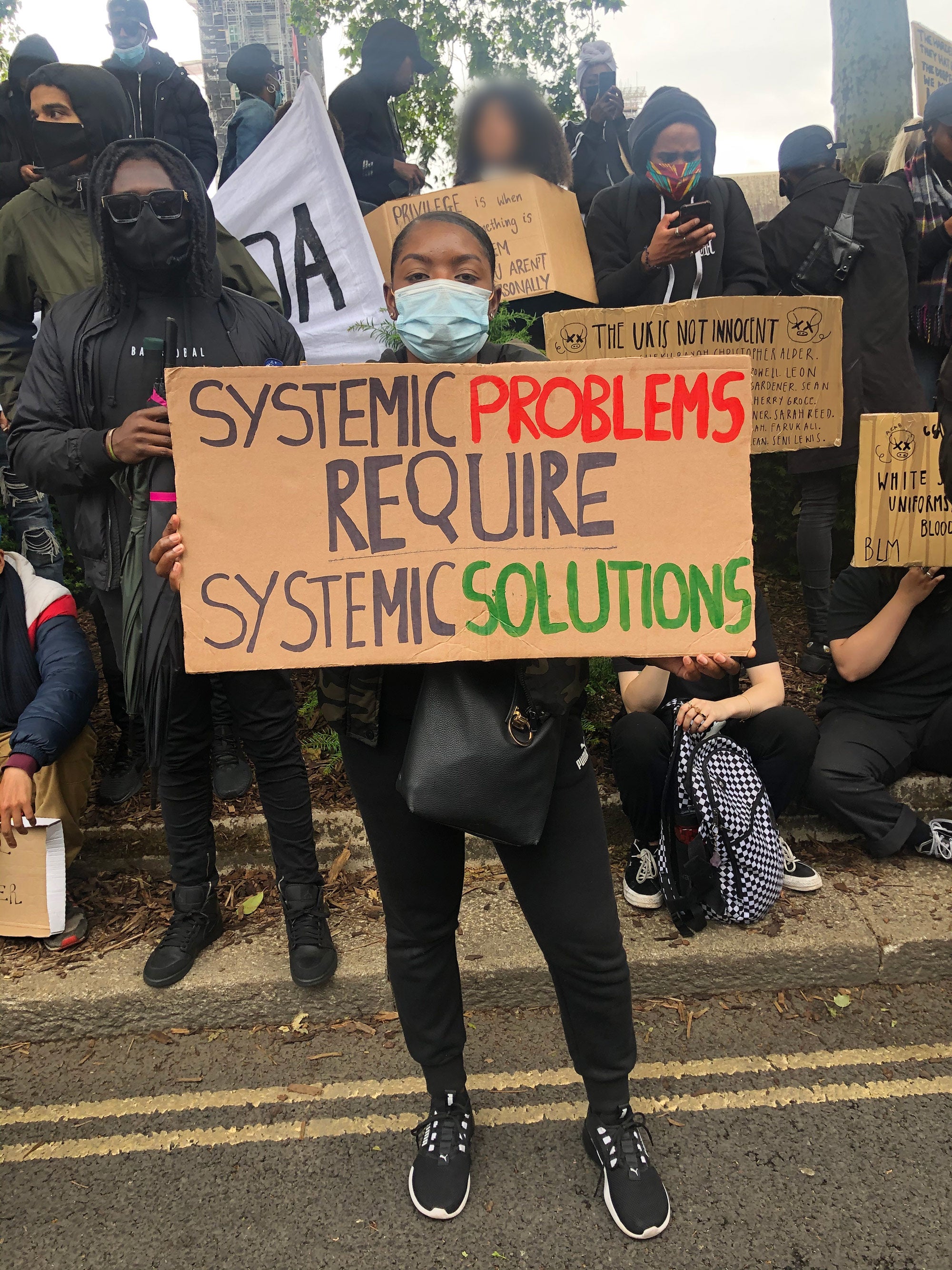
“I know how manipulative the media can be and how incorrectly they portray us, so I wanted to come out to define my own story and be the change. This moment feels like a tipping point. Enough is enough, change is in the air. With social media and technology, we are seeing so much more now and we are refusing to stand for it. There is such a sense of unity right now. I am seeing people from all walks of life, colours and creeds at this protest today.”
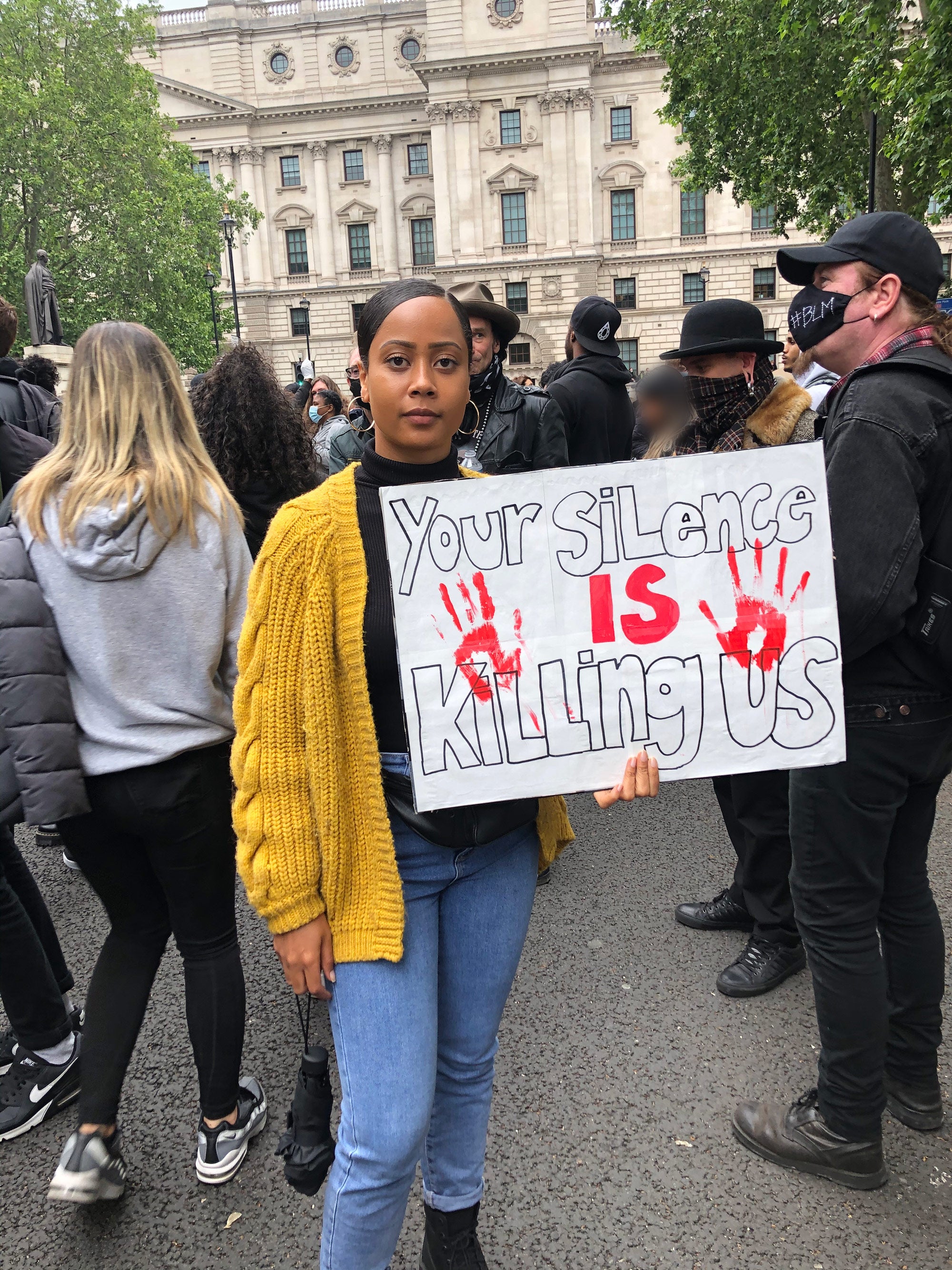
“I’m more scared of the police than I am of coronavirus, so it makes total sense for me to be out here supporting the cause and taking a stand. It feels like real change is being made, there is a lot of momentum and action is taking place everywhere. I am so excited to be part of this movement. I went to the Black Lives Matter protest in Bristol a few years back and it just feels different this time around. I can’t remember the last time I was in a crowd this big supporting one cause and showing out for Black lives. It feels amazing.”
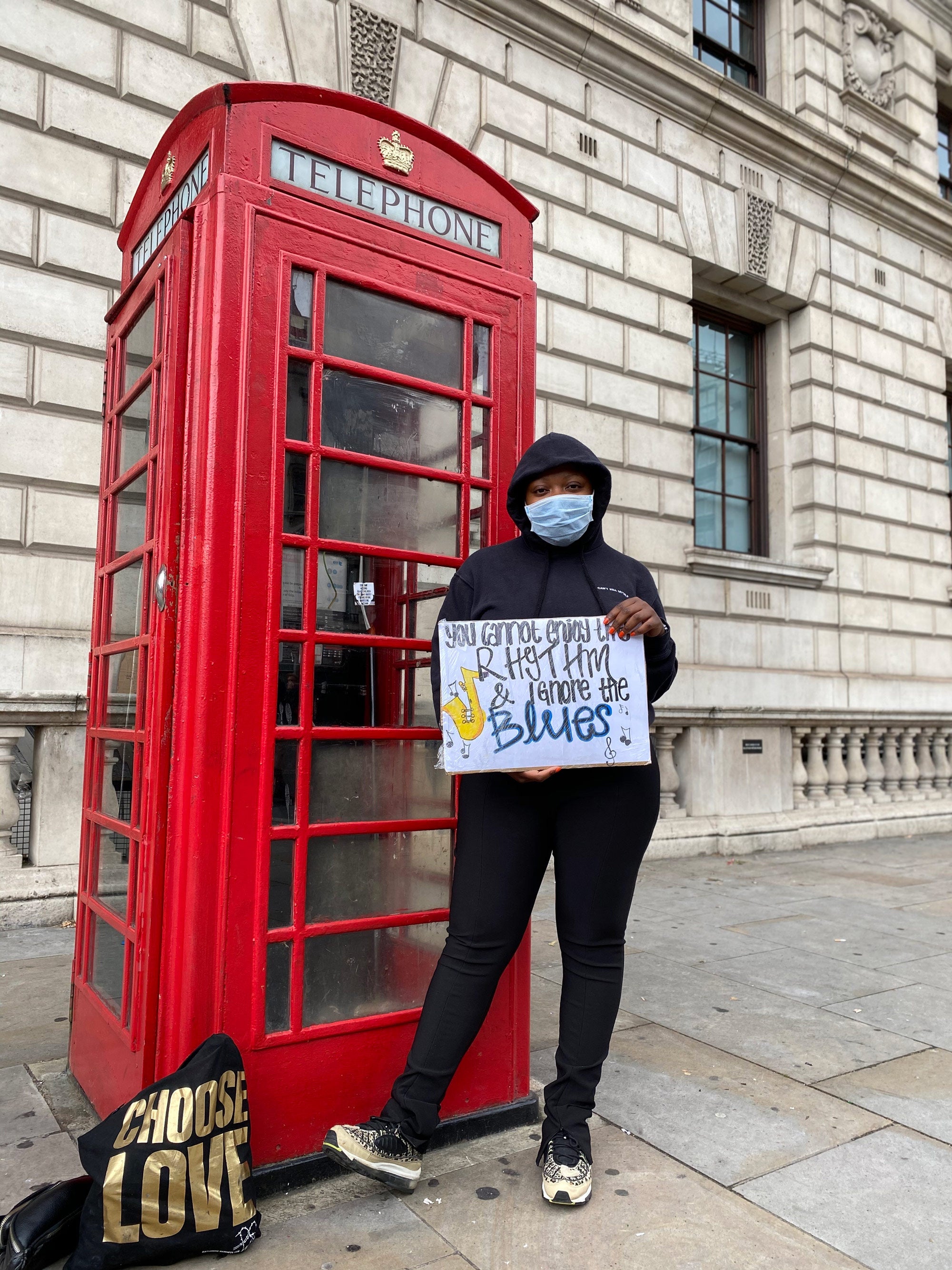
“I think police brutality and Black people dying at the hands of those who are supposed to serve and protect us is a bigger pandemic than coronavirus. Something has got to change and I want to be part of the change. Things definitely feel different this time because of how many people are standing up for us and supporting us. We’re even seeing police forces in America being defunded. It really feels like the world is being shaken up. The best part of today for me is just being here and being unapologetically Black without fear.”
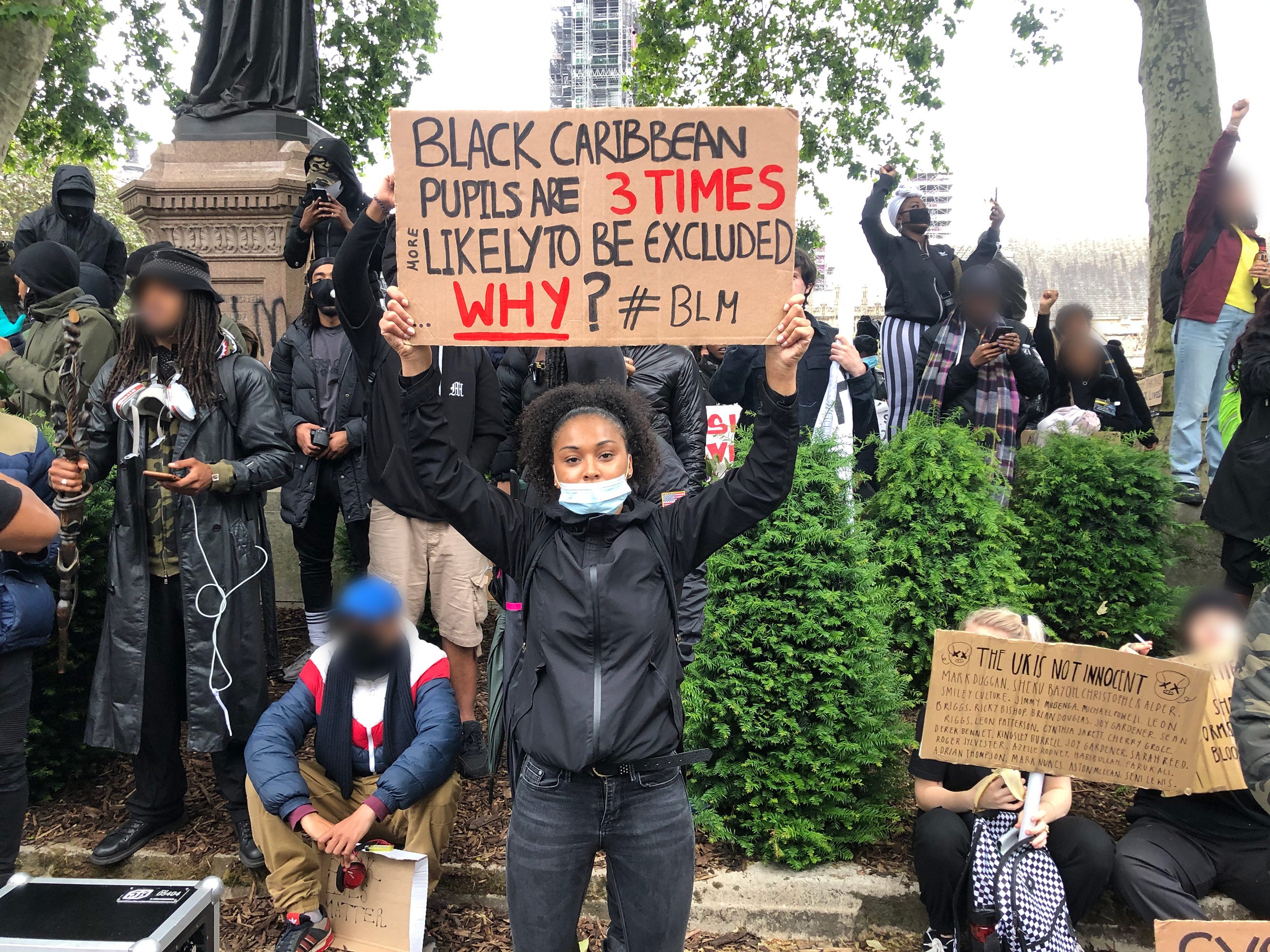
“I work in a non-mainstream school and I’m out here protesting for my students. Most of them are Black and seen as suspicious or ‘problem kids’ and I know that not to be true. It is the easy route to kick these kids out of school but often when they are, they end up in prison. I love being here today because everyone here just wants to spread the love and overcome systemic racism together.”
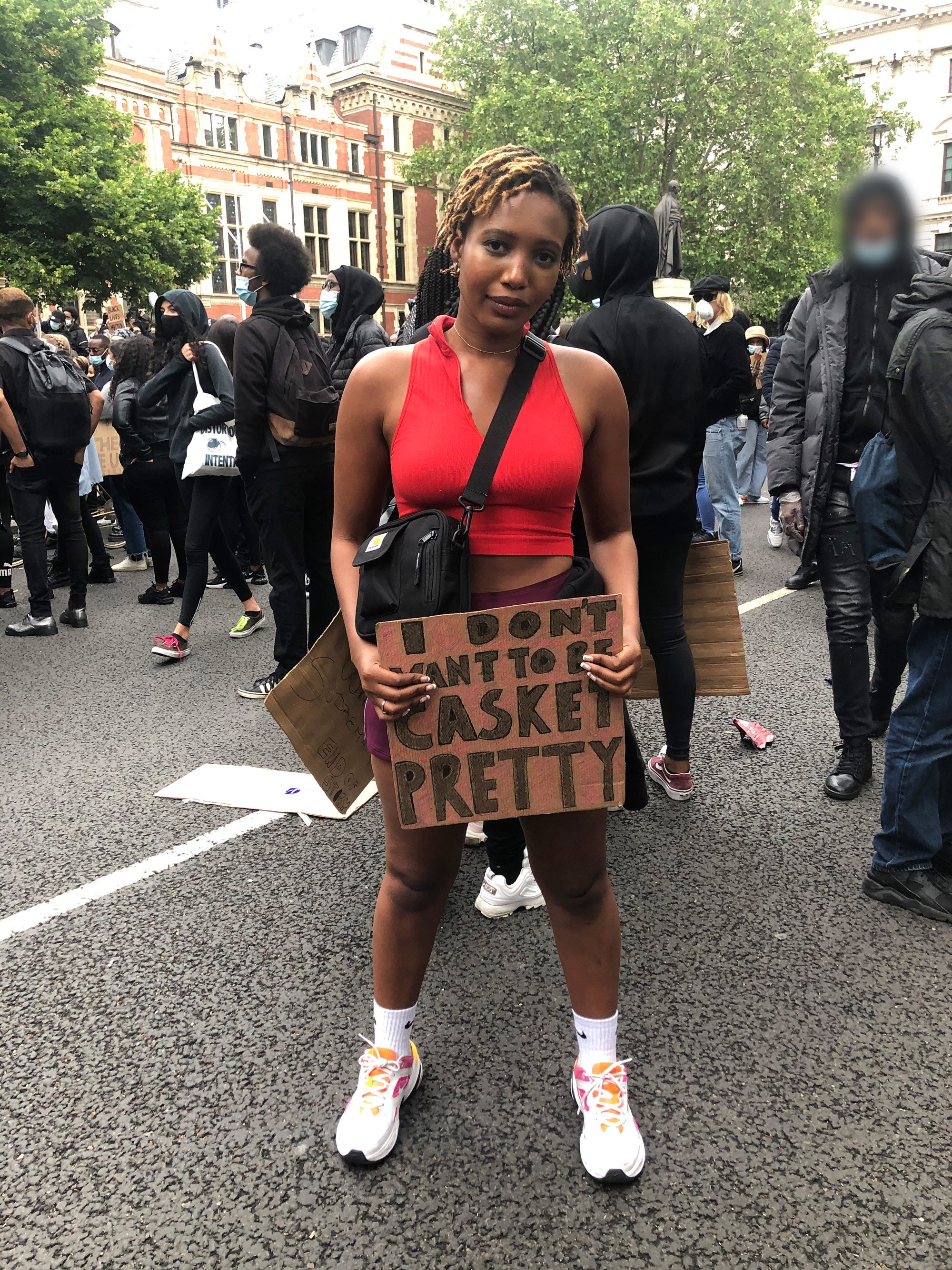
“We cannot sit at home in silence anymore. Enough is enough and change has to happen. If we don’t do it for ourselves and our children, who will? We are the ones who are suffering and it is becoming too much. This whole movement is different now, not only for us but for our allies and the system. People are hungry for change. Today has been so special because of the overwhelming solidarity. Hearing that I’m beautiful and that I matter for strangers has been so affirming. It is so easy to forget that you are important when everyone around you is telling you that you are worthless.”
Like what you see? How about some more R29 goodness, right here?
How To Help Black People Today, Tomorrow & Forever